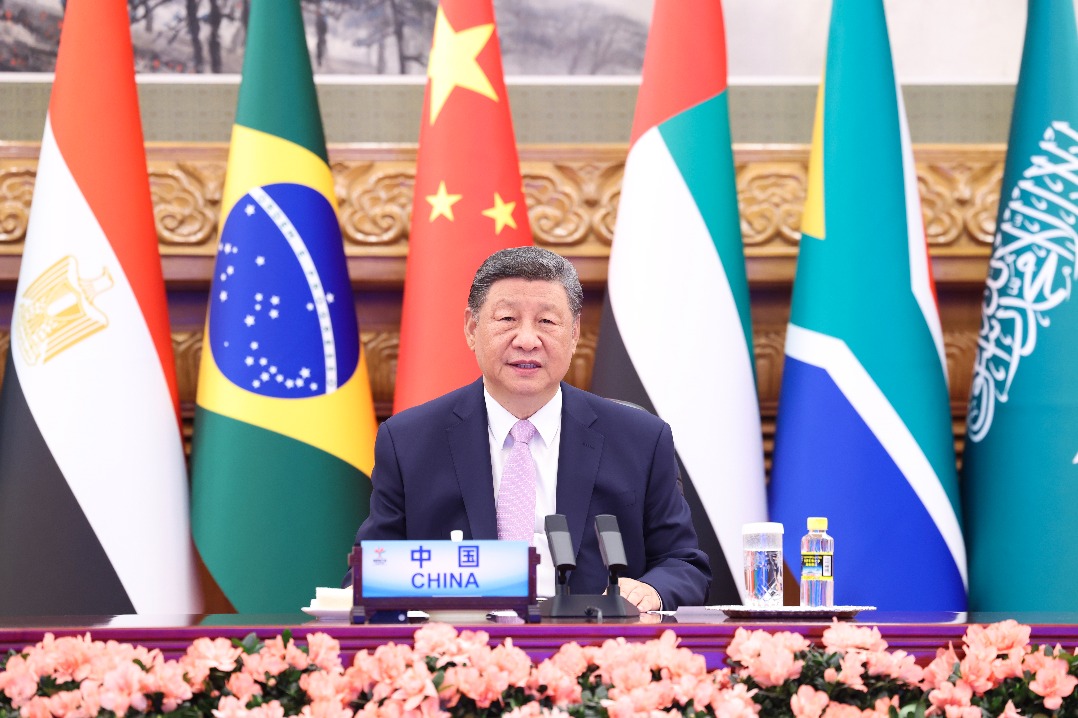OrigiMed enhances R&D in precision medicine to tap booming market

China's precision medicine sector shows great potential, as it accelerates the research and development process of biopharmaceutical companies and enables patients to have quicker access to cancer drugs, industry experts said.
Precision medicine is a medical model for high-efficiency, low-cost prevention and treatment of diseases tailored to individual patients based on their genetic signature. One major measure of precision medicine is gene sequencing-a detective technology to spot the genes that result in cancer and other diseases.
Wang Kai, founder and CEO of Shanghai-based OrigiMed, a leading precision medicine company, said: "There are vast unmet rigid demands from Chinese cancer patients. Currently, domestic precision medicine companies mainly focus on detecting specific genetic loci, to decide whether certain targeted drug can be used. However, patients' demands are far from that. They want to know the possibility of using other drugs, and the resistance of the drugs. Precision medicine in China contains great potential."
On April 30, 2020, the company inked a deal with German pharmaceutical giant Bayer to develop in vitro diagnostic products based on next-generation sequencing technology.
On Nov 8, Japanese drugmaker Takeda Pharmaceutical Co Ltd launched a partnership with OrigiMed to promote the R&D and commercialization process of Takeda's innovative cancer drugs. In May, OrigiMed announced a strategic alliance with AstraZeneca and Ping An Insurance.
OrigiMed said it plans to cooperate with more pharmaceutical companies from home and abroad to empower the R&D process of the companies' cancer drugs.
Wang said the R&D cost of a cancer drug can be more than $1 billion, and the clinical research period can be years, during which an important process is to acquire genomic information.
"During the process of gene sequencing, we acquire great amounts of genomic information, which doesn't specifically target one certain drug and satisfy pharmaceutical companies' various needs, such as the expansion of oncology drug indications, and the applicability for patients," he said.
Liu Xinwei, chief financial officer of OrigiMed, said: "We cooperate with drugmakers to collect genomic information needed in clinical research, design and optimize clinical experiments, develop testing products, quickly decide the drugs' new indication development direction, lower the R&D costs and accelerate the process of launching drugs."
Shenzhen, Guangdong province-based Qianzhan Industry Research Institute said that in 2018, the value of China's precision medicine market totaled 55.2 billion yuan ($8.5 billion), up 16.2 percent year-on-year. The market is estimated to reach 140 billion yuan by 2024.
In March 2016, the Ministry of Science and Technology launched the country's precision medicine plan and said that China will invest 60 billion yuan in precision medicine by 2030.
Global research company MarketsandMarkets estimated the global market of high-throughput gene sequencing will surge from $7.8 billion in 2019 to $24.4 billion in 2025, with a compound annual growth rate of 20.9 percent.
"In terms of gene sequencing, foreign companies started a few years earlier. Domestic companies have great room for development in the sector," Liu said.
Industry experts said in future competition, technology that offers thorough gene detection will be the mainstream. For domestic startups, bioinformatics algorithms and large databases will become core to their competitiveness.
"We will stick to comprehensive next-generation sequencing, and focus on innovation technology and molecular diagnostic information in order to remain competitive," Liu said.
Huang Tao, an independent public relations expert, said: "To better develop the country's precision medicine industry, more monetary support is needed. Clinical data, including patients' information related to work, living habits and medical history, are also needed."
"The popularization of precision medicine calls for more volunteers from society to offer comprehensive and real information to support clinical research," he said.
Today's Top News
- Xi sends congratulatory letter to 2025 China Intl Fair for Trade in Services
- China set to revise Foreign Trade Law to address challenges
- Xi's BRICS speech charts path forward
- Xi congratulates Kim on DPRK's 77th anniversary
- Sino-Portuguese ties hailed
- US 'Department of War' reflects its true role






























